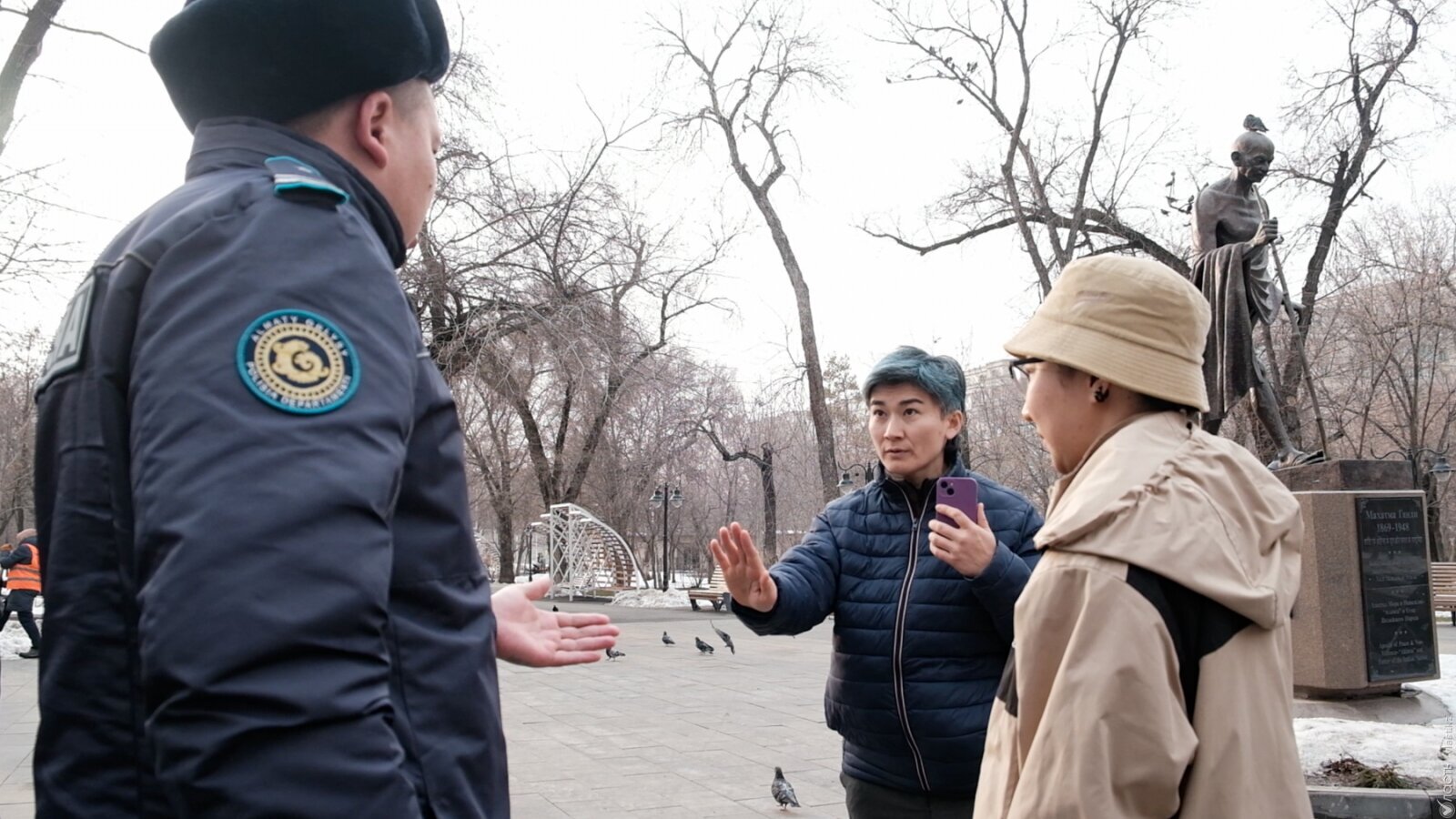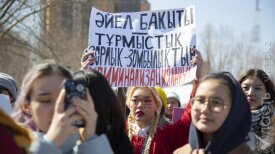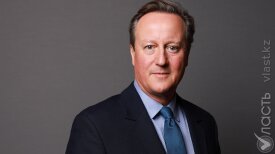In early April, Askhat Aimagambetov and Zhanarbek Ashimzhanov, members of parliament for the ruling party Amanat, proposed an amendment to the media law prohibiting “LGBT propaganda”. For publishing such “propaganda” media may be subject to suspension of work or closure.
The draft submitted for a second reading in parliament on April 17, however, did not feature these proposed amendments. The bill that was sent to the Senate for approval showed that the deputies essentially backtracked from a proposal that could have threatened freedom of the press.
[NOTE: This is an updated version of an article that we published in Russian just before the April 17 hearings. Сондай-ақ, жаңартылған нұсқасын қазақ тілінде де оқи аласыз].
Given that such kind of amendments could be repurposed also during the Senate hearings, activists and human rights defenders shared with Vlast their opinion on what consequences the passing of the law could bring in terms of both press freedom and civil rights. Such provisions, in fact, contradict both Kazakhstan’s and international legislation.
Before the April 17 version, the deputies responsible for the draft law had stated that the purpose of the proposed amendment was “to prevent propaganda or agitation of non-traditional sexual orientation”. This ban would equate “non-traditional sexual orientation” with pornography, religious extremism, and national supremacy.
Last week, other deputies unexpectedly also proposed to criminalize “LGBT propaganda” by adding it to the article of the Criminal Code on inciting social, national, tribal, racial, class, or religious hatred. The deputies even proposed to consider the promotion of “non-traditional sexual orientation” as a threat to national security.
The deputies quickly pulled back on these latter proposals regarding the Criminal Code. And only at the last minute they struck off the ban on “LGBT propaganda” in the media bill.
However, another law, focusing on domestic violence, signed last week, introduced the legal concept of “protection of traditional values”, offering grounds for interpretation that could lead to prohibiting “LGBT-propaganda” in the future.
Before the April 17 hearings, experts had noted that the amendments would clash with Kazakhstan’s laws and international legal obligations. Ultimately, rights advocates say, the logic of banning “LGBT propaganda” could also lead to increased violence against members of the LGBT+ community.
What is propaganda?
Tatyana Chernobil, a consultant on international human rights law, told Vlast that the concept of “LGBT propaganda” does not exist in international law.
She also emphasized that the current media law in Kazakhstan, as well as the proposed bill, guarantees freedom of speech and creativity, and prohibits censorship. These norms are also enshrined in the Constitution. In Kazakhstan, however, they have already tried to prohibit “LGBT propaganda” among children, but in 2015 the Constitutional Council said the bills were unconstitutional.
“The Constitution explains what kind of propaganda is unacceptable, that is propaganda aimed to a violent change in the constitutional system, to the violation of the country’s integrity, to undermining the security of the state, propaganda of war, social, racial, national, religious, class, and clan superiority, as well as the cult of cruelty and violence,” Chernobil said.
She believes that the new proposal was an attempt to legalize censorship and widen the gap between the law on media and the Constitution, as well as international obligations of Kazakhstan in the field of human rights.
“As Dunja Mijatović [then the OSCE Representative on Freedom of the Media] said in 2015, ‘once it begins, censorship never stops.’ I’m afraid that this is exactly what awaits us if these proposals are accepted,” said Chernobil.
“Deputies should remember that their role is to serve the people,” the human rights activist also said. “This proposal should make both the voters and their party think about revoking their mandate.”
Askhat Aimagambetov is the former minister of education during President Kassym-Jomart Tokayev’s first term in office. He became an MP for the first time in March 2023. Zhanarbek Ashimzhanov is a former journalist and editor-in-chief of a government-friendly newspaper.
Why Are The Amendments Illegal?
After changes to the media law in 2017, the press was prohibited to publish propaganda of any “information prohibited by law.”
Currently, the law prohibits publications promoting pornography, narcotic drugs, psychotropic substances, explosives, as well as suicide.
“Before this latest proposal, the Constitution provided the list of prohibited items upon which the media law was based. The introduction of the concept of ‘propaganda’ would mean that, in addition to those specified in the Constitution, everything that is prohibited by law can also be prohibited for propaganda. This expands the list of things prohibited for propaganda to almost infinity, given that anything can be prohibited by law,” Chernobil explained.
While pornography, drugs, and extremism are prohibited by law, “non-traditional sexual orientation” is not prohibited.
Chernobil also noted that according to the International Covenant on Civil and Political Rights, to which Kazakhstan is a party, only war propaganda and “advocacy of national, racial or religious hatred that constitutes incitement to discrimination, hostility or violence” should be prohibited.
Only a serious threat can justify other limitations.
“Propaganda is in fact characterized by truly destructive consequences, such as war or hate crimes,” Chernobil said. “So far, it is those deputies who incite hostility, through their hostile statements towards human identities that are protected by the Constitution. Let’s remember that the Constitution prohibits discrimination on any basis, including sexual orientation and gender identity.”
Aziyat Agishev, an LGBT+ activist from Astana, believes that suspending or shutting down media outlets in these cases would be a disproportionate and unjustified measure that will harm freedom of speech.
“A Threat to Society”
Haber, executive director of ILGA-Europe, an international organization dedicated to human rights issues for LGBT+ people, told Vlast that these initiatives in parliament were troubling because they “wrongfully suggest that LGBTI people are a threat to national security or social cohesion.”
“This will only have a negative impact on the LGBTI community and hurt the cohesion of the entire society. Such actions by authorities will lead to rise of violence against LGBTI persons,” Haber warned.
Agishev also emphasized that publishing information about LGBT+ people does not lead to any negative consequences for society.
“To this day, there is not a single scientific, objective piece of evidence that information about LGBT+ people infringes on the rights of others or even undermines state security, public order, health, or morality of the population.”
Therefore, he argued that the proposed ban had no legitimate purpose.
An Ugly Precedent
The concept of “LGBT propaganda” can be interpreted and used arbitrarily. This became clear when the Russian government introduced a similar legislative ban in 2013.
Noel Shayda, head of the communications department of the Sfera Foundation, which defends LGBT+ rights in Russia, explained that the ban on propaganda was introduced gradually: It had been “tested” in the regions since 2011, then expanded throughout the country.
“Based on our experience, we can say that the ‘propaganda’ clause was not used universally, but was rather an additional factor of intimidation,” they said. “It was rare that conventional ‘propaganda’ was the only thing that raised questions from the police. This led not only to the conditional ‘exemplary flogging’ of activists, but also to the deployment of a massive censorship machine that could block any type of content.”
Yegor Skovoroda, editor of the online outlet Mediazona, also said that everything related to LGBT+ people in Russia was at first considered “information harmful to children,” until when any mention of the community became prohibited.
“They found a way to criminalize LGBT+ people by inventing the ‘international LGBT extremist movement,’ an abstract entity that anyone could join,” Skovoroda told Vlast.
Last year, Russian authorities officially defined the criteria for “LGBT propaganda” and recognized the LGBT+ movement as “extremist.”
Through these provisions, in Russia, rural satirical performances, where female characters are performed by men, and music videos of singers, including those loyal to the political regime, can be checked for “propaganda”. And media are also subject to fines: A music channel was fined one million rubles (around $11,000) because male dancers were shown wearing makeup and jewelry, and an online cinema was fined for screening the film ‘Scam of the Century.’
“For exactly the same reasons, Russia is also trying to block the Duolingo language learning service throughout the country,” Agishev also notes.
Duolingo, a popular language learning resource, uses inclusive language in its exercises.
Tradition without responsibility
Before the April 17 hearings, deputy Zhanarbek Ashimzhanov had explained that the ban on the media would concern “one-sided information, when these [non-traditional] relations are depicted as better than ‘traditional’ relations.”
It is unclear who exactly would have conducted the examination, and what constitutes “one-sided information.”
Agishev said that the introduction of such broad terms as “traditional” and “non-traditional” into legislation would have created great difficulties in applying laws in practice: for some, for example, beating women is within the framework of traditions, but for others this is unacceptable violence.
At the same time, the concept of “traditional family values” has already appeared in the laws concerning “the rights of women and the safety of children”. These amendments, recently signed by Tokayev, introduced changes to the marriage code.
Marriage and family legislation is now based, among other things, on the principles of “protecting, preserving, strengthening, and promoting traditional family values,” and children must be raised in the spirit of “respect for traditional, cultural, and family values.”
Legislators justified the changes saying that “the propaganda of same-sex marriage (...) is aimed primarily at undermining traditional values and destroying the family.”
“But families will not start divorcing if someone says something about LGBT+ people on the web,” Agishev concluded.
In a commentary to The Village, lawyer and human rights activist Khalida Azhigulova, who participated in the working group developing the bill, said that, together with other experts, she proposed eliminating the rules on “traditional values” due to their vagueness. She noted that such a legally enshrined concept does not exist in any country in the world except Russia, where “traditional values” are used to contrast so-called “Western” ones.
NOTE: Were the proposed amendments against “LGBT propaganda” introduced in the media law, this article may become the basis for pressure on the editorial board of Vlast.
Read more about the risk of arbitrary interpretation of the concept of “LGBT propaganda” due to the lack of a clear definition of the word “propaganda” and the consequences for the media that criticize the country’s leadership in our editorial.
Поддержите журналистику, которой доверяют.










